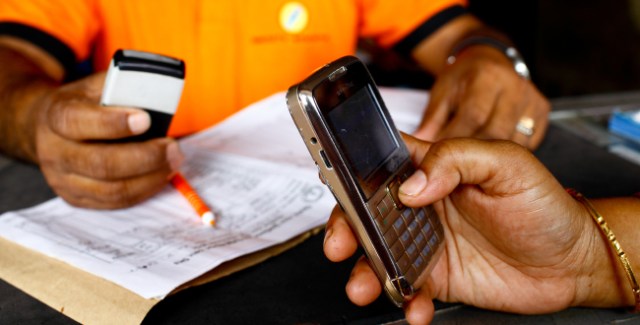A fresh breed of scammers has hit the mobile money sector, the Uganda Communications Commission (UCC) has cautioned.
The most common trick that had for long been successfully used by mobile money scammers was to send their target a message indicating their mobile money account had been topped up.
The scammers will then immediately call the receiver, requesting them to send back the money, saying it was mistakenly wired.
To rush and confuse the target, they’ll sometimes appeal to their emotions telling them they have a patient in the hospital or they’re stuck, so the receiver will not take time to check their balance.
But with time, people became aware of this, and the number of such instances has dramatically reduced.
With the addition of features in the mobile money interface that reveal details of the person you’re sending money to, using such a ruse would most likely arouse suspicion.
These new fraudsters, however, instead of a text message, they’ll actually send money to your mobile money account, then call you to send back the money, giving the same reason of it was mistakenly sent.
On sending the money, all your balanced will be wiped clean.
How this is technically possible is still a mystery.
The message which was shared by Ibrahim Bbosa, a consumer affairs manager at UCC, indicates that the scam has been happening in Ghana since the currency used in the message is Ghanaian.
#FRAUD ALERT #MOBILEMONEY FRAUD. Attached is abridged text making rounds on WhatsApp. To investigate authenticity of such Electronic fraud with the interest to safeguard & protect consumers, any victims are advised to register a complaint to @UCC_Official Toll-free on 0800133911 pic.twitter.com/MvehARdwlW
— Ibrahim Bbossa #IKB (@IBbossa) September 23, 2018
In most mobile money fraud cases, reports have indicated that workers of telecom companies have been involved in these schemes.
The workers who have access to the databases of customers have the capacity to change your mobile money account details to another number and then render your number invalid without your permission.
This year alone at least four members of parliament, including two ministers, had their SIM cards cloned, and the crooks that swapped them used them to scam people.
Two MTN employees were subsequently arrested in connection to the above.
Read: How tech-savvy crooks use your mobile phone line to rob you
What these scammers normally need to hack into your SIM card are your names, date of birth and your ID.
Mobile money agents have also been involved in these schemes since they always take your details (phone number, amount sent) during the transaction process.
When talking to you, they’ll easily convince you since they are aware of the transactions you just made.
In some countries, registration of mobile money transaction details has been banned.
Other scammers take advantage of details you live behind when accessing some establishments. For instance, some companies scan your IDs or tell you to leave them behind before accessing their buildings and it is now also common for registration books to ask for phone numbers.
In the wrong hands, this information can be used to access your banking details and mobile money account.
Cases of theft of personally identifiable information (PII), through social engineering, leading to sim swap, have also been reported in some countries.
What normally happens is that a fraudster makes a call pretending to be an employee of a mobile network operator and asks the unsuspecting subscriber to share their PII, such as their national ID, mobile money pin, or SIM card pin.
After obtaining the PIII, the criminals then illegally replace the sim card, gaining access to all SIM services including mobile money transfer, mobile and internet banking Voice calls, SMS, and any other services that can be transacted through the phone.
Meanwhile, UCC has provided a toll-free number – 0800133911 – in case you encounter such fraudsters.
But is it technically possible?
— Albert Mucunguzi (@albertmuc) September 23, 2018
Techs have dismissed it as not technically possible. The merits can be investigated if there is an actual victim. Lets wait and see. Previous #MOBILEMONEY frauds have had some kind of inside help. But the known cases are still under judicial consideration in case of subjudice
— Ibrahim Bbossa #IKB (@IBbossa) September 23, 2018
I doubt this is technically possible. However, with internal collusion, which isn’t a new thing in organisations, there is a chance this hack is possible.
— mwesigwa (@valanchee) September 24, 2018
Types of mobile money fraud (compiled by GhanaWeb)
Anonymous calls from fraudsters: Customers receive calls from fraudsters after deposits to transfer funds received with the claim being airtime. False Promotion: Customers are lured to authorize cash out transaction with the claim of winning Mobile Money promotion.
Cash out Fraud: Customers are pushed payment approval prompt and lured to enter their pin code in order to receive price won through Mobile Money. False
Promotion: Customers are lured to visit merchant point to redeem price won through Mobile Money.
Scam: Fraudsters calling to dupe customers under the pretext of delivering goods from abroad. Some fraudsters call and ask for specified amounts to be deposited into a mobile money account, in exchange for goods from relatives/friends from abroad.
False Cash out SMS: Fraudsters send false cash out messages to merchants for authorization of which the physical cash is issued by the merchant to the fraudster without the equivalent e-cash.
False Promotion SMS: Fraudulent consumers send fake SMS to agents either from their own handsets or generated from computers. The SMS looks genuine to the recipient.
Related:
Uganda has the most expensive internet in East Africa – Report
Tough rules await Ugandan telcos as cabinet approves Broadband Policy

